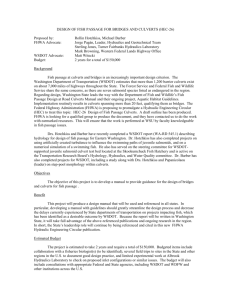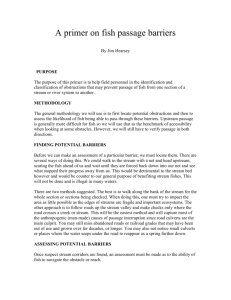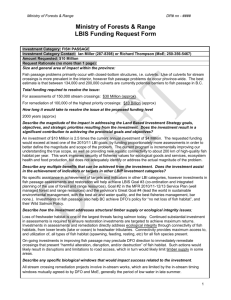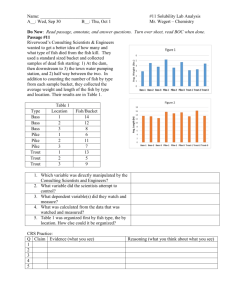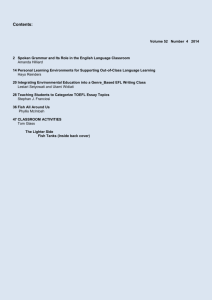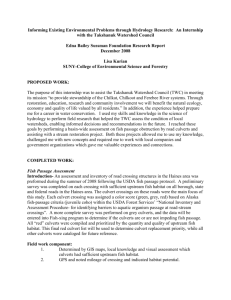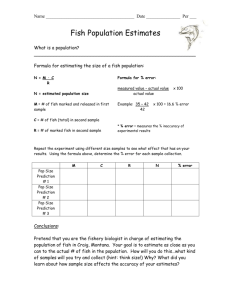Fish Passage Workshop Agenda Version 2 Mod
advertisement
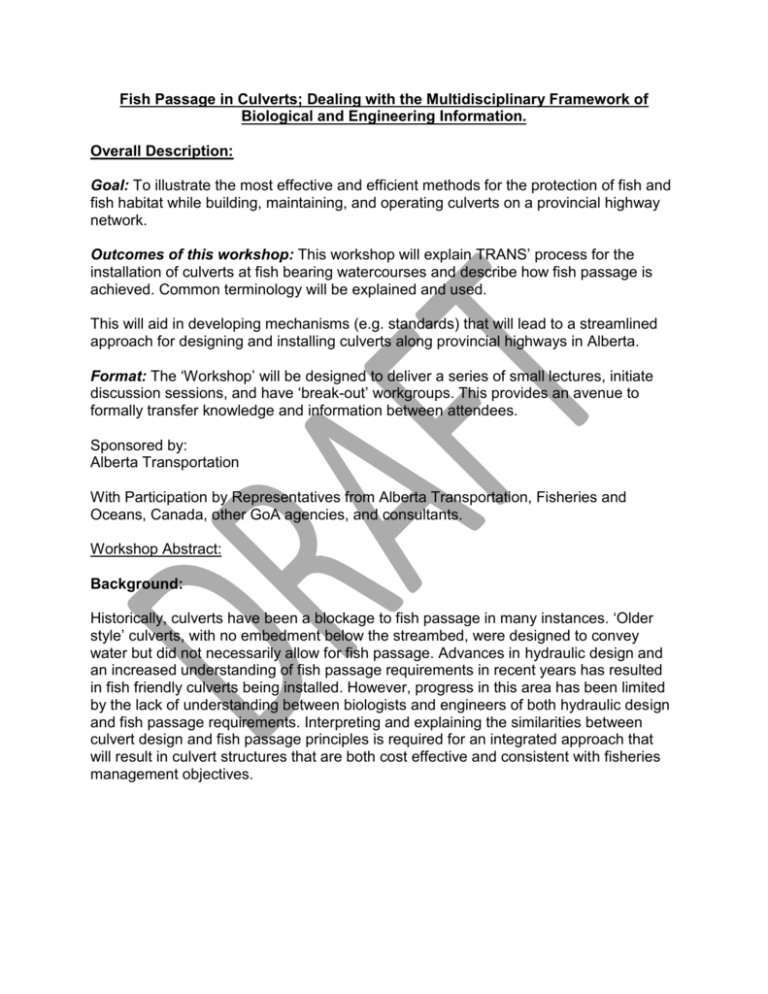
Fish Passage in Culverts; Dealing with the Multidisciplinary Framework of Biological and Engineering Information. Overall Description: Goal: To illustrate the most effective and efficient methods for the protection of fish and fish habitat while building, maintaining, and operating culverts on a provincial highway network. Outcomes of this workshop: This workshop will explain TRANS’ process for the installation of culverts at fish bearing watercourses and describe how fish passage is achieved. Common terminology will be explained and used. This will aid in developing mechanisms (e.g. standards) that will lead to a streamlined approach for designing and installing culverts along provincial highways in Alberta. Format: The ‘Workshop’ will be designed to deliver a series of small lectures, initiate discussion sessions, and have ‘break-out’ workgroups. This provides an avenue to formally transfer knowledge and information between attendees. Sponsored by: Alberta Transportation With Participation by Representatives from Alberta Transportation, Fisheries and Oceans, Canada, other GoA agencies, and consultants. Workshop Abstract: Background: Historically, culverts have been a blockage to fish passage in many instances. ‘Older style’ culverts, with no embedment below the streambed, were designed to convey water but did not necessarily allow for fish passage. Advances in hydraulic design and an increased understanding of fish passage requirements in recent years has resulted in fish friendly culverts being installed. However, progress in this area has been limited by the lack of understanding between biologists and engineers of both hydraulic design and fish passage requirements. Interpreting and explaining the similarities between culvert design and fish passage principles is required for an integrated approach that will result in culvert structures that are both cost effective and consistent with fisheries management objectives. Agenda – Fish Passage in Culverts; Dealing with the Multidisciplinary Framework of Biological and Engineering Information Registration and Coffee at 8 am – start-up 8:30 am Proposed Time 8:30 am to 8:40 am 8:40 am to 9:15 am Item Presenter ‘Housekeeping Items’ Richard Roberts Introduction Dana Becker Part 1 - Fish Background - Culverts and Fish Dana Becker Part 2 – Culverts What is a Culvert? Culvert Components Culvert Design and Construction Culverts – Pros / Cons Des Williamson 9:15 am to 10:00 am 10:00 am to 10:15 am Health Break 10:15 am to 11:00 am Part 3 - Why is fish passage important? Context for Alberta Transportation Biology Basics (as they relate to fish passage) What is known about fish swimming capabilities? 11:00 am to 11:20 am Questions/Discussion 11:20 pm to 12:10 pm Part 4 - Culvert Hydraulics Hydrotechnical Design Parameters Channel Hydraulics Culvert Hydraulics Culvert Sizing 12:10 pm to 1:10 pm 1:10 pm to 2:05 pm Lunch and discussion Part 5 - Mixing engineering and biology Where Fish Passage is required Fish Passage Criteria Example Dana Becker Des Williamson All Dana Becker 2:05 pm to 2:25 pm 2:25 pm to 2:45 pm Part 6 - Fish Passage Scenario (small groups if time allows) Caroline Watt Caroline Watt 2:45 pm to 3:00 pm Health Break 3:00 pm to 3:30 pm 3:30 pm to 4:00 pm Part 7 - Risk Assessment and Monitoring and Evaluation Dana Becker Questions and Discussion, Feedback Wrap Up Everyone
